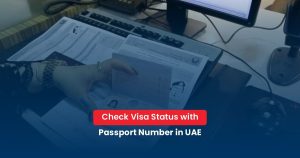It is clear that successful trade rests upon favorable geopolitical conditions, and the UAE ticks all boxes. Its location is at the Middle East, Asia, Europe, and Africa crossroads, complemented by world-class logistics hubs. It has been a member of WTO since 1996. This combo simplifies the movement of goods and supports the steady growth of businesses that conduct it. Hence, the question is not whether to start an import and export business in Dubai but how. To begin, you need to understand the process of setting up a business in Dubai, obtaining a trade license, customs requirements, and all the costs accompanying it.
The process of business setup in Dubai explained
Before starting an import and export business in Dubai, there are some things to determine first:
- Define your trading activity and ensure compliance of your activity with Dubai law.
- Decide on the company’s shareholding structure (legal form), making sure it matches the planned activity.
- Choose the right business jurisdiction.
- Choose the appropriate trade name and submit it to the Department of Economic Development (DED) for approval.
- Find and rent or lease commercial real estate.
- Apply to DED for initial approval and check if you need external permissions.
- Draft, sign, and notarize the Memorandum of Association (MOA) or the Local Service Agent (LSA) agreement for your business.
- Open a corporate bank account with an international bank.
- Pay the fees upon receiving the payment voucher.
- Collect the trade license.
Defining trading activity
Firstly, you need to define your trading activity. Perhaps you already know what you want to trade and the legal category such a business falls into. But if you don’t, UN Comtrade data may help you decide. If you want to join in the flow of most commonly exported goods in 2021, you will opt for crude petroleum oil and its products, telecommunication parts, gold, jewelry, and precious stones. And according to 2019 WTO data, over 95% of imported goods fall into categories of manufacturing, agricultural products, and mining products.
Remember that every shipment imported to or exported from Dubai goes through the customs clearance process, so make sure the goods you trade aren’t prohibited. The user guide for the process of registering your company online with Dubai Customs will clear any doubts you might have.
Deciding on the legal form of your business and adequate jurisdiction
Selecting the proper shareholding structure is tightly connected with the choice of jurisdiction. In other words, the legal form of your import-export business depends on the jurisdiction and must be in accordance with your planned business operations. In Dubai, there are three business setup zones; mainland, free zone, and offshore, as well as three types of licenses; industrial, professional, and commercial license. It may not be an easy task to compare your business requirements and the pros and cons of every jurisdiction, so don’t hesitate to seek advice from business setup consultants in Dubai on time.
The most common legal form for an import-export business is a Limited Liability Company (LLC). Accordingly, you must obtain a commercial license for your export-import business. However, note that you’d need to find and partner with a trustworthy UAE national to start a business in Dubai mainland. Free zone jurisdiction requires a local service agent who will work for a fee.
Reserving a business name
The name you choose for your business must be unique and comply with UAE trade name criteria. Avoid blasphemous or offensive language and follow a straightforward set of naming rules. As for uniqueness, propose several options for the DED in English and Arabic. Having multiple options is good to ensure at least one of them is not already taken by another business entity in the world and is available to register. The registration process takes a couple of days, and upon approval from the DED, the name is valid for six months. As a cherry on top, consider registering a trademark for your business.
Renting or buying commercial real estate
You need a physical address to start an import and export business in Dubai. It doesn’t matter if you rent or buy. Once you have a tenancy contract, Real Estate Regulation Authority (RERA) documents, and EJARI registration certificate, you can apply to DED for initial approval. Regarding global logistics centers that are essential to your supply chain, think about your options and choose the ones that suit your business operations best. Consider setting up your offices near important logistic centers.
Getting the initial approval
Once you submit all the requested documents, the Department of Economic Development grants the initial approval. It is a sign that you can begin your business operations and resume the process of obtaining your trade license. You will discover whether you need to acquire additional permissions from other departments or governmental bodies during the initial approval process.
Applying for a trade license
Filing a trade license application with the DED involves drafting and notarizing the Memorandum of Association (MoA) or the Local Service Agent (LSA) agreement, depending on the chosen jurisdiction. The MoA and LSA are legal documents that specify roles, liberties, and limitations partners or an agent have. Ask your legal advisor for help preparing these documents.
Paying the business setup fees
Upon submission of all the documents mentioned above, the Department of Economic Development will issue a payment voucher or provide a transaction number, so make sure to open a corporate bank account on time. The fees are only one part of the business setup cost. Apart from the type of business activity, the fees will vary depending on the jurisdiction zone and the number of shareholders.
A payment for collecting the business trade license comes next. Remember that the trade license is subject to annual renewal at a fee. Don’t forget to consider the cost of visas for yourself and all your dependents. Although not mandatory, purchasing business insurance should also be regarded as part of a business setup cost.
Collecting the license
Finally, once you collect the trade license, you’re all set to start an import and export business in Dubai. It is clear the process is extensive and depends upon numerous careful deliberations. Should you get stuck in any part of the process, team up with reputable legal advisors and business setup consultants in Dubai. In the trade business, like in any other business, there’s zero tolerance for wasting time and money.





